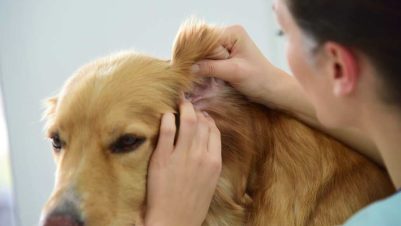THE Equine Veterinary Centre is a four vet equine practice near Doncaster in South Yorkshire. It was established in 2002 when an existing companion animal practice split into separate equine and small animal practices.
The practice has three partners and one assistant (who is joining the partnership this year). The ethos of the practice is that if vets stay with the practice long term then they should be involved in the decision making and have a financial stake in the practice.
The partners are Richard Coppack (Liverpool 1985), Ann Walker (Murdoch 1998) and Damien Cain (Melbourne 1999). In 2010 the practice obtained a licence from the VMD to make unlicensed medicines for horses.
For several years the practice had made up unlicensed medicines for its own clients to use. “The owners found them so useful that we thought that other practices would be interested,” says Richard Coppack.
So the partners approached the VMD and applied for a MANSA licence which gave them the authorisation to make “unlicensed” medicines. These medicines can be used under the cascade where there are no licensed medicines for horses.
Regulatory hurdles
It wasn’t easy to get a licence. “There were many regulatory hurdles to overcome and we spent several thousand pounds on improving building and equipment. In addition we have to have regular inspections from the VMD which cost several thousand pounds per day,” says Ann Walker, another of the partners.
Now, three years on, the practice sends out medicines to over 70 equine practices. It has employed and trained three local people to prepare and distribute the medicines and is proud to be providing extra employment at a time of high unemployment.
“Essentially, we were frustrated by the lack of licensed medicines for horses,” says Ann. “Trying to get horses to take 50 to 100 prednisolone 5mg tablets is a bit of a challenge, and the 25mg tablets are unaffordable, so the prednisolone 250mg sachets are far more convenient.
“Similarly, doxycycline is a really useful antibiotic in horses and we were having to split open 30 capsules a day to treat a foal for proliferative ileitis. So we decided to buy the bulk powder that is licensed for pigs and make sachets that are convenient for owners to use.
“Whilst we produce five medicines routinely, we will look at any requests from vets, and see if we can help. In 2012 we introduced tubs of metformin powder.
“The owners were struggling to administer 40 tablets a day, so mixing powder into the feed is much easier. It definitely improves compliance. However, metformin isn’t very palatable, so we suggest owners hide the taste with a strong flavour like apple.”
Expanding the range
The practice is looking to slowly expand the range of medicines from the present five. It looks for niches such as an n-acetyl cysteine 4% solution for foal enemas, which no pharmaceutical company already produces.
“The market for this medicine is so small; someone like Pfizer wouldn’t bother with it. Yet it is really useful. N-acetyl cysteine enemas have virtually eliminated the need for surgery on retained meconium in foals.”
Richard comments: “We have found the cetirizine sachets very useful or seasonal head-shaking. When I was at college, we were taught that antihistamines did not work in horses. However, we found that for those horses with seasonal head-shaking where the trigger is rhinitis, cetirizine will alleviate it.”
One of the main expenses, apart from regulations, is the stability testing the practice performs. “We have to know that when we change the formulation of a medicine that it still has got all its activity,” says Damien Cain.
The series of tests costs several thousand pounds so they are steadily building up a databank to extend the expiry dates. For example, the prednisolone sachets are now proven to be stable for at least two years. The cost of stability testing is one of the main brakes on introducing new unlicensed medicines.
With the supply of new licensed medicines drying up, the partners feel that there will be a continuing need for unlicensed medicines in the future.
“It costs several million pounds to license a drug for use in horses, so the big pharmaceuticals aren’t developing a lot of new drugs specifically for horses. There is a need for unlicensed medicines, but they have to be affordable to owners”, says Damien.
“Owners are seeing their own incomes eroded by inflation so we look at products which don’t add significantly to their costs. We look for medicines which we can make more accessible to practices like ourselves and that none of the big companies is providing.”
Last month the practice introduced a piperazine wormer for horses. “We find there is quite a lot of resistance to licensed wormers nowadays. In the days before ivermectins, there were two studies which showed piperazine was effective against adult small strongyles that were resistant to benzimidazoles. It is also effective against resistant Oxyuris equi and Parascaris,” Damien says.
“Unlike North America, piperazine has never been used in horses in the UK, so there is unlikely to be any indigenous resistance here. To conform to the cascade, vets will only be able to use it if there is resistance to existing licensed wormers.”








